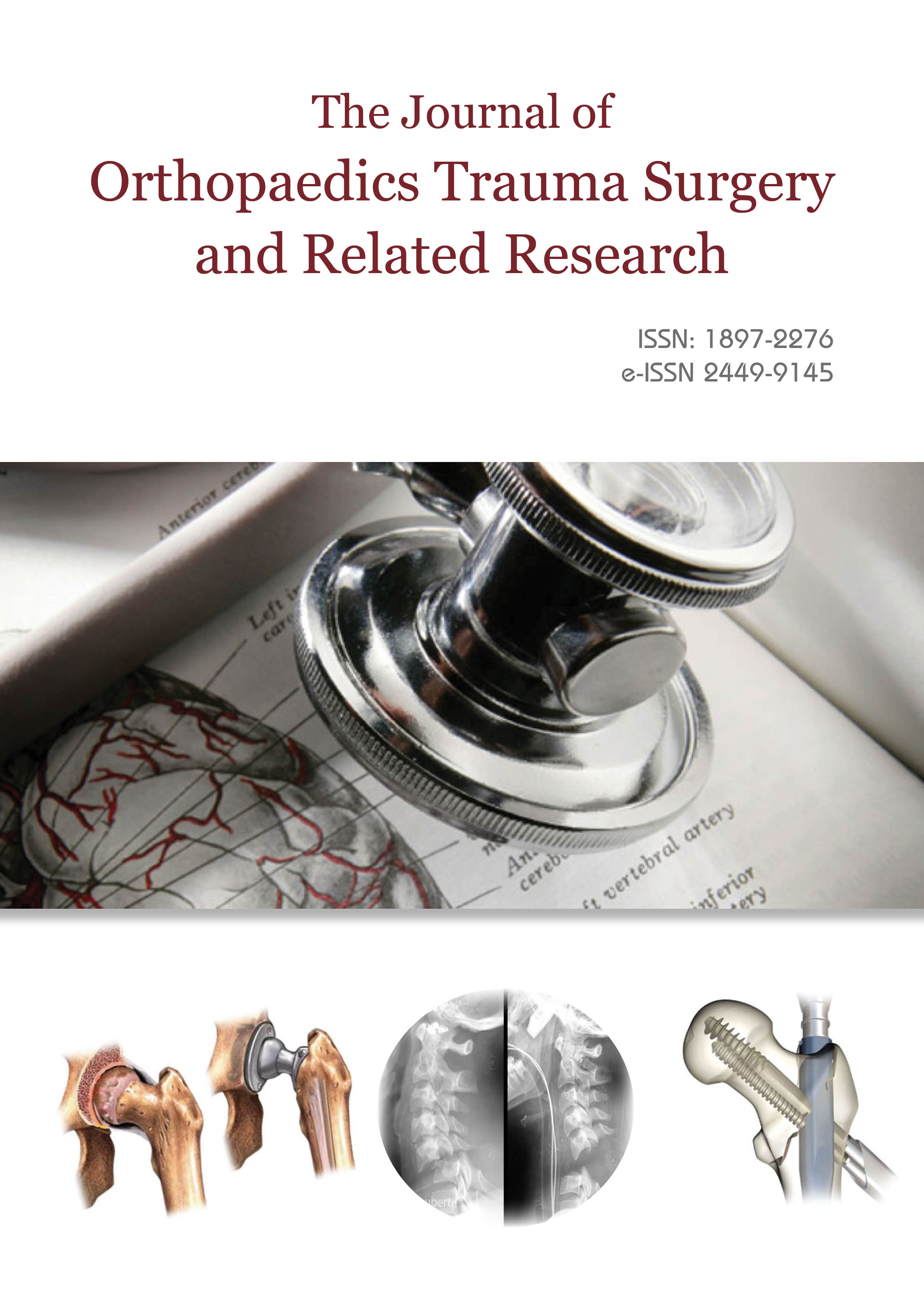Journal of Orthopaedics Trauma Surgery and Related Research

An Official Journal of Polish Society of Orthopaedics and Traumatology
ISSN:1897-2276
e-ISSN: 2449-9145

An Official Journal of Polish Society of Orthopaedics and Traumatology
ISSN:1897-2276
e-ISSN: 2449-9145
Background: The aim of the present study was to evaluate the functional outcomes of arthroscopic Anterior Cruciate Ligament (ACL) reconstruction using Sironix knee devices.
Methods: All the subjects were consented telephonically for the study purpose. Demographic data, surgery details and other baseline characteristics of the subjects who underwent ACL reconstruction surgery between January 2019 to July 2022 were collected from the medical records. Primary objective of the study was to assess the functional outcomes using International Knee Documentation Committee (IKDC) and Modified Cincinnati Rating System (MCRS) questionnaires. Secondary objectives were to assess the pre- and post-surgery activity levels using Tegner Activity Score (TAS) and quality of life evaluation using Quality of Life (QoL) subscale from Knee Injury and Osteoarthritis Outcome Score (KOOS) score. ACL reconstruction failure rate, adverse device effects and surgery-related adverse events information was collected.
Results: A total of 44 subjects completed the study. The mean (SD) age was 34.5 (±11.4) years. Mean (SD) total duration of follow-up was 16 (±7) months. Out of 44 subjects, 35 (79.5%) did not have any comorbid conditions. Mean (SD) of total IKDC score of all enrolled subjects was 85.9 (±7.5) out of 100 and mean (SD) of MCRS questionnaire was 94.5 (± 6.8) out of 100. Mean (SD) of TAS before injury was 7.9 (±0.9) and current status was 5.2 (±1.04) out of 10. Mean (SD) values of quality of life subscale of KOOS score was 88.5 (± 9.2) out of 100. There were no reconstruction failures and adverse device effects reported in this study.
Conclusion: Considering remarkable results in all the functional assessment scores and no incidence of reconstruction failures, this study concludes that ACL reconstruction surgery using Sironix knee devices as safe and effective method.
Select your language of interest to view the total content in your interested language
 Journal of Orthopaedics Trauma Surgery and Related Research a publication of Polish Society, is a peer-reviewed online journal with quaterly print on demand compilation of issues published.
Journal of Orthopaedics Trauma Surgery and Related Research a publication of Polish Society, is a peer-reviewed online journal with quaterly print on demand compilation of issues published.